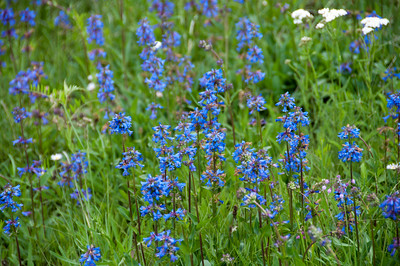Want to Help Bees? Plant These Plants in YOUR Yard
January 29, 2020
We can all do our part, even if it just planting a few new plants to provide food for our bees. Read more...
Bee Colony Collapse, Honey Bees
With so many challenges facing our pollinators, people want to know how they can help. A new report from CNN has been blowing up all over the internet that offers several different plants that people can place in their own gardens that will help some of our pollinators thrive. These particular plants are known to be attractive to another pollinator having as many problems as the honey bee, the bumblebee.
Like the honey bee, bumblebees have seen a significant decline in their population over the last few years. From April 2015 to April 2016, beekeepers reported a loss of 44 percent of their colonies. Like the honey bee, parasites, pesticides, loss of resources, and “mismatches between phenology of plant species and the phonology of bumblebee species.”
Jerry Cole, the lead researcher on the project, stated, "It's important to consider the availability of plants when determining what's selected for by bees. Often studies will use the proportion of captures on a plant species alone to determine which plants are most important to bees. Without comparison to how available those plants are, you might think a plant is preferentially selected by bees when it is simply very abundant."
The species of plants recommended in the report were:
- Large-leaved lupine
- urticifolia (a member of the mint family)
- Thick stem asters
- Rydberg's penstemon (snapdragon family)
There has also been another study done recently that would suggest cannabis is good for bees, but you probably don’t want to plant that on your own unless you are willing to go to jail for the sake of helping pollinators.
On placing these plants in your own garden, Cole stated, "It wouldn't hurt to plant some of the species we identify here in your home garden. But the way that these plants are beneficial are not just on their own. You have to have a nice complement of plants that provide food resources throughout the season and not just at one point in the season." The study further stated, "Maintaining, seeding or planting these 'bumblebee plants' while managing the surrounding landscape" to support a "diverse floral community is likely to benefit bumblebees, especially if some combination of favored plant species are blooming across the duration of bumblebee activity at a given location.”
If you plan on taking things a step further to become a beekeeper yourself, be sure to educate yourself prior to starting your own hive. As we have covered in previous posts, the one contributor to a declining population that nobody wants to admit is the lack of education by beekeepers diving into this as a hobby. Many colleges and organizations are now offering inexpensive courses with some even offering free classes to ensure hobbyists are properly educated.
Source: CBS58, Photo Courtesy of Paul Asman and Jill Lenoble via Creative Commons License


.jpg)




